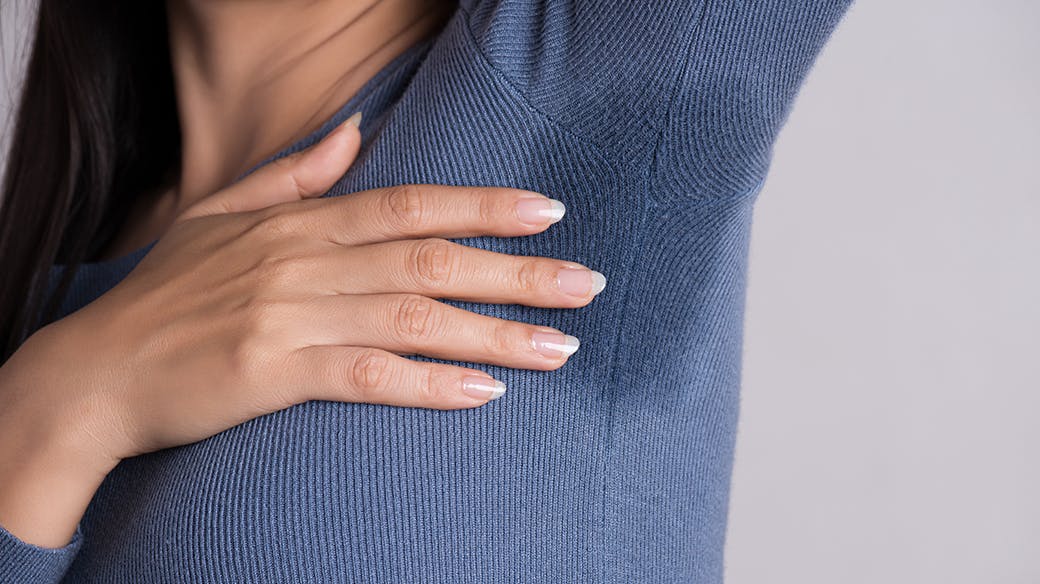Body odor is undeniably important in making a good impression on people we mix with during the day, from colleagues and customers to our loved ones. Absence of strong, distracting body odor is pleasant for others and ourselves alike. As such, everyone should take due care of the odors they emit. Those experiencing a strong body odor problem will be interested to learn the roots of the problem and some solutions, as we explain here.
Where does body odor come from?
As we all know, sweat and body odor go together. Sweat is excreted from two types of glands. Eccrine glands, located on most of the body’s skin, have the function of cooling the body when its temperature rises by evaporating sweat. Then there are apocrine glands, found mostly in areas where hair grows such as the armpits and groin. Odor from the olfactory glands is caused by fatty acids secreted by the skin. As they encounter bacteria on the skin, the fatty acids break down into smaller, short-chain molecules with the characteristic pungent odor of ammonia.
Sweat itself doesn’t smell but it takes on odors related to food consumption. Spices and foods high in choline such as garlic, onions, bean paste, coriander and some drugs contain substances that stimulate sweat glands to excrete more odorous fat.
In short, body odor is caused by internal sweat gland factors and external factors reflecting our behaviors. Adjusting these external factors is the most direct way to avoid unpleasant body odor.
Some solutions for strong body odor
Keep clean – Take a shower and if you know you have a body odor problem, especially focus on the armpits. You could also use a soap with ingredients that reduce or eliminate bacteria.
In case your body odor gets out of hand during the day, give the skin around the armpits an extra wipe with a damp cloth or tissue. Then apply some more deodorant. That way you will continue to feel confident for the rest of the day. Also, keep focused on the cleanliness of your clothes which can contribute to unpleasant odors.
Use deodorant – Both deodorants and antiperspirants have similar mechanisms to reduce reactions of sweat with bacteria. However, deodorants are primarily alcohol-based so that they deodorize by making the skin more acidic, thereby reducing its reaction with bacteria, without actually harming the skin. Moreover, deodorants don’t reduce sweat production. Antiperspirants, on the other hand, mostly contain aluminum chloride which clogs sweat glands, reducing sweat secretion and drying the skin. This stunts bacterial growth so no odor is given off. However, according to Assoc. Prof. Dr. Pimolpan Pithayanukul from the Faculty of Pharmacy, Mahidol University, antiperspirants are not recommended as some contain aluminum residues that can affect brain tissue if they pass into the bloodstream.
Avoid odor-producing conditions – These include hot, stuffy and humid conditions. The smell of clothes is also important; musty smelling clothes should be avoided.
See a dermatologist – Those who have a body odor problem they can’t solve on their own can consult a doctor. Armpit laser hair removal could be used to reduce accumulation of odor-causing substances and bacteria. Botox injections can reduce formation of odor-causing substances. Surgery can remove odor-producing glands. All these methods usually work well.
Although body odor isn’t a serious health problem, it shouldn’t be ignored. Those who have to do activities or are in a situation where sweating is unavoidable can apply these recommendations. However, those who have a chronic problem are recommended to see a dermatologist to find the cause and get more appropriate treatment.
Krungthai-AXA life Insurance customers can find more details about the full range of KTAXA Health services at https://www.krungthai-axa.co.th/th/HealthServices
References
· Faculty of Medicine, Siriraj Hospital, Mahidol University
https://www.si.mahidol.ac.th/th/healthdetail.asp?aid=1097
· Faculty of Medicine, Ramathibodi Hospital, Mahidol University
https://www.rama.mahidol.ac.th/patient_care/th/health_issue/26022016-1046-th
· Sukhumvit Hospital
https://www.sukumvithospital.com/healthcontent.php?id=114
· Pobpad website
https://bit.ly/3BQI1DU
· Medthai website
https://bit.ly/3vlK1m2


